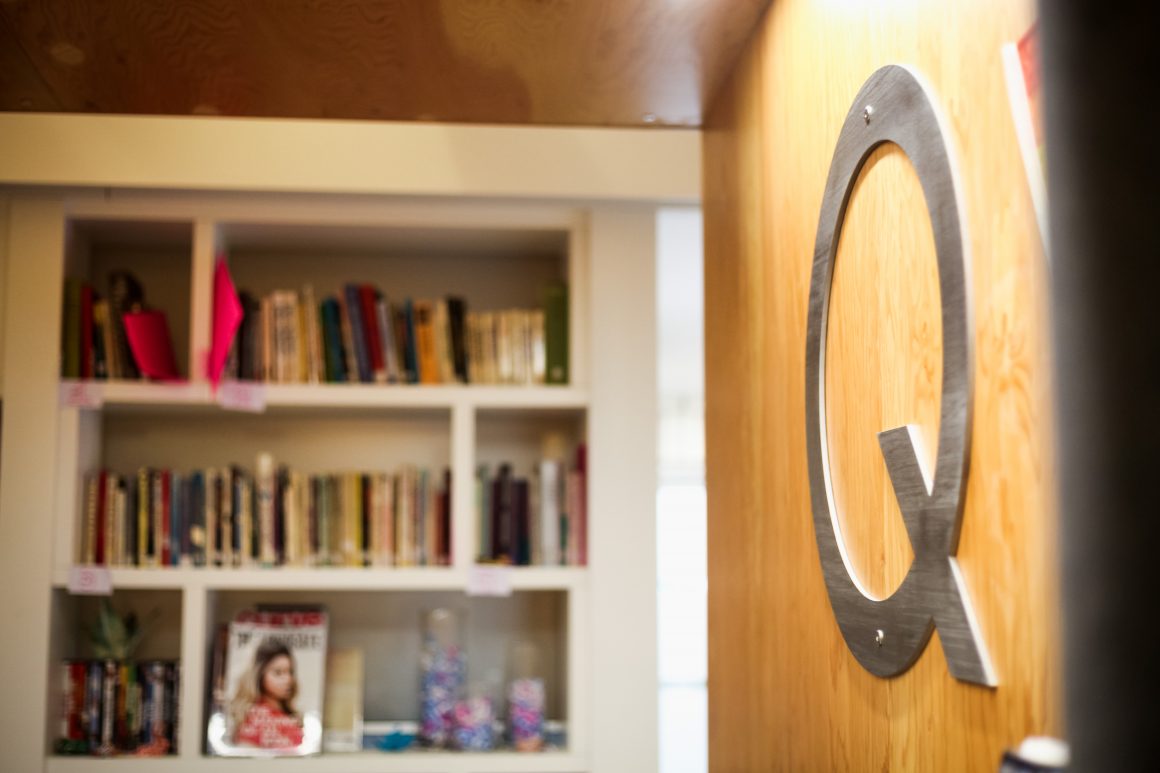
SU Q Centre library spotlight: Sarah Waters
By Jen Sidorova, February 16 2018 —
If you weren’t already aware, there’s a library within the Students’ Union Q Centre in MacHall, the LGBTQA+ community space on the U of C campus. One author on its shelves worth checking out is acclaimed novelist Sarah Waters.
Waters is well-known for her fantastic ability to describe the deep, genuine feelings of her characters in a natural and empathetic way. Solidified by her PhD in English literature, Waters is absolutely brilliant at telling stories anywhere between Victorian England and post-war Britain.
She prefers to explore characters by presenting honest societal observations. The greatest strength in her storytelling is the use of intimacy to explore these themes. At times, reading her books feels like discovering someone’s lost diary, adding an unparalleled charm to her prose.
Waters is also a rigorous researcher. Given the fact that she was born nearly two centuries later, her descriptions of Dickensian England carry a persuasive realism. Due to her impressive academic background, she knows how to implement her knowledge of British history into a narrative setting, including local cultures and slang.
Noted in some reviews, her first novel, Tipping the Velvet, was characterized as a mixture of Janet Winterson and the feminist postmodernism of Judith Butler. Such comparisons are unsurprising, since Waters is not only an acclaimed writer but also a feminist activist for queer rights. In her writing, Waters adopts a postmodernist approach that reinterprets and reconsiders common concepts and frames them from a different angle.
Literary postmodernism is Waters’s weapon in her struggle against homophobic stereotypes. For example, Waters’s queer characters usually don’t belong to visibly diverse communities and are often not even recognizable as queer by their imagery or style. This makes sense, considering the timeframe of Victorian England — there are no gay bars or pride parades on London’s streets. Waters’s female characters don’t overanalyze their sexuality when they fall in love with another woman. By turning her main protagonists into women who are ‘regular’ by many Victorian accounts, Waters protests a common stereotype about queerness as being caused by living conditions or upbringing. By putting her stories into this historical context, she also denies the idea that queerness is a modern phenomenon.
Audiences seem to love Waters regardless of sexuality and political views. The BBC filmed three mini-series TV shows based on her novels, namely Tipping the Velvet, Fingersmith and Affinity, which exemplifies how Waters’s talent as a storyteller is capable of tearing down social stereotypes about queerness and turned her into a mainstream writer. Knowing her popularity among non-queer readers, Waters emphasizes modern language such as “queer” and “gay” in their original meaning, but italicizes the words in the text. It’s also fascinating to observe how Waters’s books challenge societal perceptions about sexual diversity and gender equality. In Paying Guests, there is an active debate about the economic inequality between men and women, discussed through the thoughts and conversations of the main characters. Through conventions like these, the author asks questions about the acceptance of diversity in gender and sexual orientations. In this regard, the novels of Sarah Waters are time machines that fight for social justice.
The SU Q Centre is located on the second floor of the east side of MacHall.
